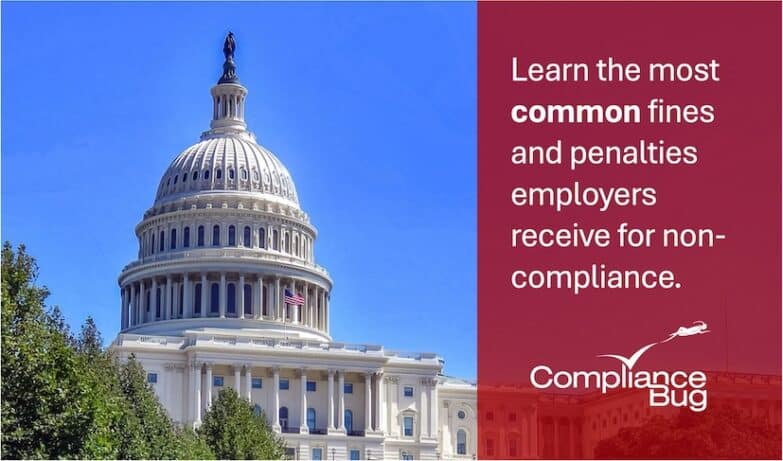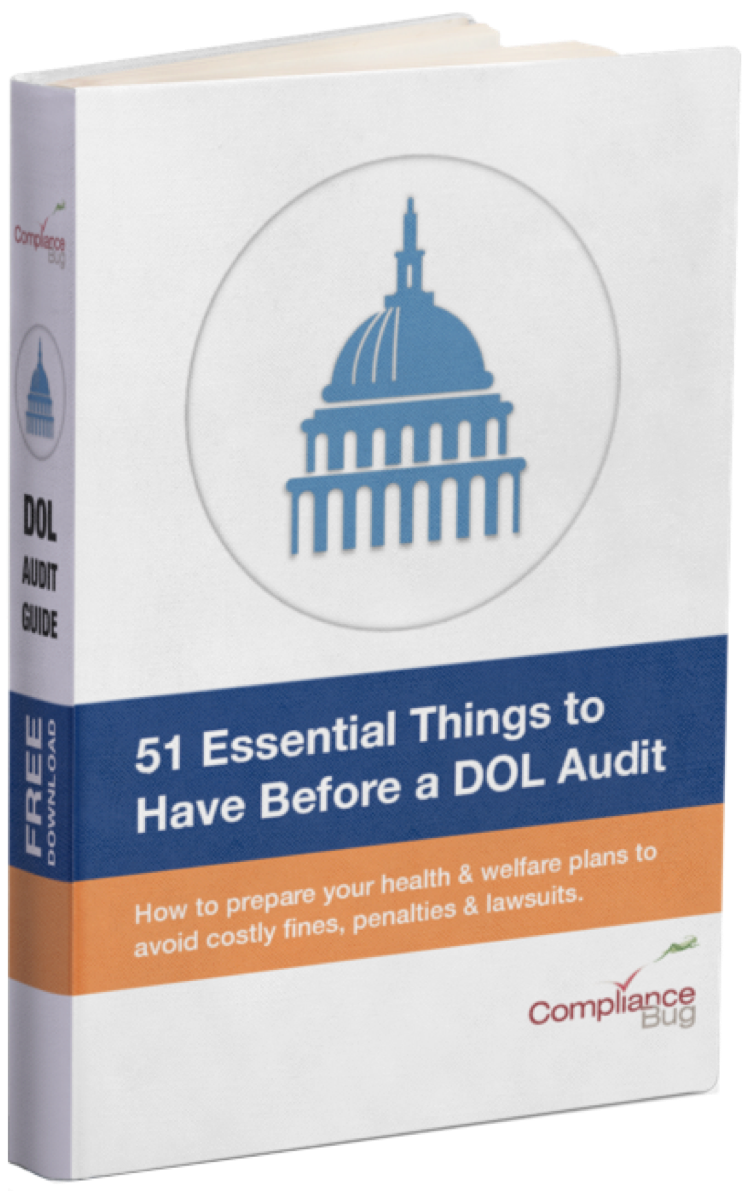Employers of all sizes need to comply with numerous laws and regulations. Periodically, government agencies update the fines and penalties they can (and will) assess if they find an employer non-compliant during a compliance audit or civil lawsuit.
Some of the more common Federal compliance areas include (but aren’t limited to):
- the Employee Retirement Income Security Act (ERISA);
- the Family and Medical Leave Act (FMLA); and
- the Fair Labor Standards Act (FLSA);
- the Affordable Care Act (ACA);
- Form 5500 Filings;
- Section 105 and Section 125 Plans;
- HIPAA; and
- COBRA
While not a comprehensive list, the below are just a few examples of the more common penalties levied for typical compliance failures.
ERISA
Often discovered as part of a Department of Labor (DOL) audit or during discovery during an employee civil lawsuit, employers (even as small as 2 employees!) and their fiduciaries can be held responsible for failures.
- Failure to furnish plan-related information when requested by the DOL up to $195 per day;
- Failure to provide required annual employee notices (varies between $145 to $1,956 per employee)
Form 5500 Filings
ERISA plans that are required to file annual Form 5500’s need to do before filing deadlines. While plans can file an extension for more time, missing a deadline can result in failure to file penalties.
- Failure to file a 5500 form can be up to $2,739 per day (per plan);
- For employers who have multiple plans to file (e.g., one for medical benefits, one for life insurance benefits, and another for disability benefits), missing just one year could be catastrophic ($2,739 x 365 days x 3 plans)
NOTE: The EBSA offers a voluntary compliance program where plans can submit late filings for a substantially reduced penalty (for as little as $10 per day capped at $2,000 per plan). The late filing must be initiated by the employer plan before the EBSA notifies you of a compliance issue.
Affordable Care Act & Form 1095 Reporting
While too numerous to list here, applicable large employers are required to comply with the Affordable Care Act (ACA) and its filing requirements of Form 1095’s. Failures will typically lead to the IRS sending the employer penalty notices. These notices often arrive 18-24 months after the calendar year ends.
- If an employer fails to offer coverage to at least 95% of their workforce and dependents and even one employee receives a premium tax credit (PTC), they can be fined $241.67 per full-time employee per month. For a 100 employee company that could be nearly $203,000 annually when taking into account the 30 person exemption (70 employees x $241.67 x 12 months);
- Failing to offer coverage that is affordable and provides minimum value can be $363 per month per for each full-time employee if they receive a premium tax credit due to inadequate coverage. For example, if just 10 full-time employees each received a PTC for six months, a penalty of $21,750 could be assessed.
- $330 per return for late failing the Form 1095(C) with the IRS; the fine doubles for intentional disregard. For the 100 employee company that could be up to $66,000 with no maximum (100 employees x $330 x 2)
- $330 per return for failing to furnish the Form 1095(c) to employees; the fine also doubles for intentional disregard. For the 100 employee company that could be another $66,000 with no maximum (100 employees x $330 x 2).
Self-funded Plans & Section 125 Plans
Required annually, these tests are an often overlooked requirement of both self-funded plans as well as pre-tax benefit plans that are sometimes referred to as “Premium Only Plans”, “Premium Conversion Plans”, “Cafeteria Plans”, or “Flexible Spending Accounts”.
- Failure to pass the various annual non-discrimination testing provisions could lead to the participant’s constructive receipt of additional gross income when they would have been nontaxable if the benefits had passed. That is, imputed income for the value of the benefits need to be included in their annual W2.
- For each day that the plan is discriminatory, potential excise taxes or civil penalties of $100 per day per individual discriminated against can be assessed.
What Should Employers Do to Comply?
Employers should become familiar with penalty amounts and review their pay practices, benefit plan administration and work with their trusted advisors.
At the very least, one of the best ways to prepare for an eventual government audit (or civil lawsuit) is for employers to adopt a comprehensive compliance approach that include tools to ensure compliance deadlines are met, risk assessments to identify compliance gaps, and other training and educational resources.




